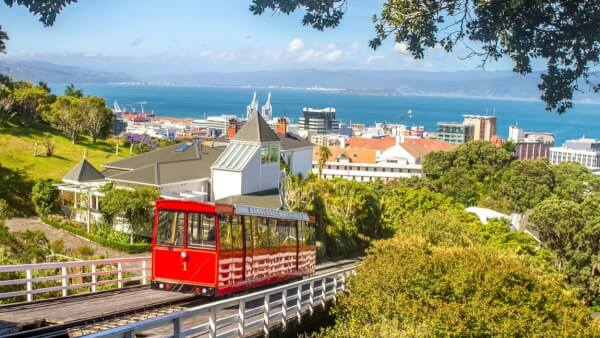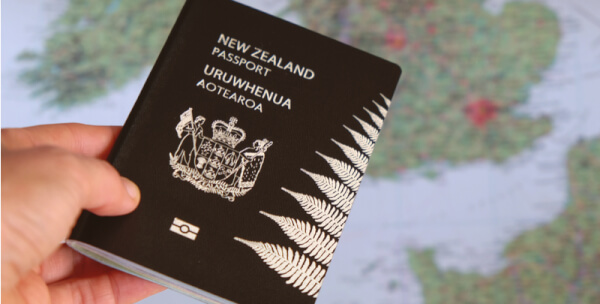Moving to New Zealand from Australia
If you’re an Aussie who’s keen to relocate and see what life is like over the ditch in New Zealand, you’re not alone, thousands of Australians make this move...

There are so many reasons to consider moving to a new country. Maybe you’re ready to retire. Maybe you’re looking for a new job. Maybe you’re going to school. Maybe you’re just looking for a really exciting new adventure. A new home abroad can provide all of these and more.
But before you choose a country, it’s important to know whether it will be a good fit for you. What if you get there, settle down, and then realize it’s not the right home for you? Doing plenty of research and considering the pros and cons of a country before you move there can help you avoid that terrible situation.
New Zealand, with its English-speaking residents, relaxed culture and absolutely stunning natural scenery, has long been popular with expats. But is it the right home for you? Read on to learn about some of the pros and cons.
If you’re considering New Zealand to be your new home, there must be a reason, right? There are a lot of pros to living among the Kiwis. Here are a few reasons to go ahead with a move to New Zealand.

Kiwis enjoy a high quality of life for a relatively low cost of living. Housing and rent prices are much lower than in places like London or New York, even if you live in the city center of Auckland or Wellington. Sure, some things will be a little more expensive. Imported food and goods, for example, can come with a hefty price tag. But overall, if you’re moving from somewhere with a high cost of living, life in New Zealand could really give your wallet a break.

New Zealand has some of the wildest, most rugged, most untouched and most beautiful wilderness in the world. Even just outside of cities, you can find vast swaths of land so untouched it will seem like you’re the first person ever to set foot there. Hiking, biking, fishing, camping and backpacking opportunities are abundant. Outdoors people will be more than happy exploring everything New Zealand has to offer.

Life in New Zealand is relaxed and laid back. No one takes life too seriously, and a good work-life balance is encouraged. Very few people are expected to work after hours. There’s less pressure to be successful in your field of work. And overall, New Zealand has less traffic and quieter cities than many other countries. If you want a taste of the quiet country life, New Zealand has plenty of it to offer.

In New Zealand, there’s effectively very little difference between permanent residency and citizenship. As a permanent resident, you can vote, come and go as you please, and have access to all the same government-subsidized perks, like public education and tax-funded healthcare, as citizens do. Even the New Zealand government agrees that there’s not much difference between the two:
Citizenship in New Zealand is superficially similar to permanent residency. Citizens and permanent residents enjoy certain rights and protections, including the right to reside permanently in New Zealand.

New Zealand’s economy is growing, and its market isn’t totally saturated by entrepreneurs. That means, if you have an idea for some new or innovative business, it may not have already been done in New Zealand. It’s also a market that still has room for new restaurants, coffee shops, bars and other shops. Entrepreneurs will find plenty of opportunity to start new businesses in New Zealand. New Zealand also has shortages of skilled workers in certain fields, like IT, accountancy and healthcare. If you work in any of those industries, finding a job will be easy for you.

Opening a bank account is simple and straightforward in New Zealand. You can even open an account from abroad, as long as you have the right documentation (including a work or resident visa), and the process is simple and can be done entirely online up to a year before you arrive in New Zealand, so you know you’ll arrive with your finances already in order.

All residents in New Zealand have access to government subsidized healthcare, which can be used with no out-of-pocket costs. The standard of care is high, as well. Even non-residents can access that quality healthcare, though they may have to pay fees in order to do so.

New Zealand is known for a few really great things: coffee and honey. Both are abundant and delicious in New Zealand. And, since importing food and goods can get expensive, there’s a real culture of eating what’s fresh, local and in season. Farm-to-table food is trendy in a lot of countries, but in New Zealand, it’s just a way of life.

Education in New Zealand is known for being some of the best in the world. Plus, for citizens and permanent residents, it’s free. If you don’t have residency in New Zealand, though, you’ll have to pay fees for your kids to attend even local public schools, so be aware of that.
There are many amazing reasons to call New Zealand home. But there are some reasons it may not be the best fit for you. Some cons to living in New Zealand are:

New Zealand isn’t a huge island, and it’s really far from everything. If you move there from the US, Canada or the UK, you’re going to be really far from your friends and family, and in a vastly different time zone. Being that far away from everything that’s familiar can lead to feelings of homesickness, loneliness and isolation. On top of that, if you want to visit home, you’re probably looking at a long and expensive flight, since you have to go so far.

New Zealand is a quiet, laid back place. Sure, there are bars and clubs. But they aren’t nearly as common as in big cities in other countries like London or New York City. If you’re looking for drinks, dancing and music, you’re going to have a hard time in New Zealand. And while music festivals are common year round in Europe and the US, they haven’t quite taken off yet in New Zealand.

New Zealand just doesn’t have the level of production of goods that some countries do. That means a lot of goods, from food to electronics to clothes, are going to be imported, and importing goods can get expensive. If there’s a certain brand you’re looking for, you may not be able to find it within New Zealand’s somewhat limited selection of goods, so you may need to have it shipped from somewhere else in the world, which comes with its own costs.

If you rely on public transportation to get around, you’ll struggle in New Zealand. There’s no established rail system, and the trains that do exist are slow, run infrequently and can be expensive. Some cities have bus systems, but they aren’t the most reliable.

New Zealand has a history of lax housing standards. That means that many older homes have faults, from poor insulation to a complete lack of heating. Even though the weather in New Zealand is pretty temperate, you’re going to want a home that keeps out the elements.

Before you move to or visit New Zealand, you’re going to want to make sure you can access your money when you arrive. If you transfer money internationally via your bank or a traditional money transfer service, you can expect to see a 4-5% markup on the exchange rate -- basically a hidden fee that you have to pay just to move your money. Wise, on the other hand, transfers money internationally at the real mid-market rate - the same exchange rate you see on Google. The only thing you have to pay is a small, fair transfer fee that’s spelled out upfront. There are no hidden fees or markups.
You can also open a borderless multi currency account and keep a balance in New Zealand dollars, as well as in another 28 different currencies. Simplifying the move if you haven’t yet opened up a bank account in New Zealand.
Knowing the pros and cons is just the first step in choosing where you want to live, especially if you plan to stay for a long time. Wherever you choose to go, safe travels and good luck with your move!
*Please see terms of use and product availability for your region or visit Wise fees and pricing for the most up to date pricing and fee information.
This publication is provided for general information purposes and does not constitute legal, tax or other professional advice from Wise Payments Limited or its subsidiaries and its affiliates, and it is not intended as a substitute for obtaining advice from a financial advisor or any other professional.
We make no representations, warranties or guarantees, whether expressed or implied, that the content in the publication is accurate, complete or up to date.

If you’re an Aussie who’s keen to relocate and see what life is like over the ditch in New Zealand, you’re not alone, thousands of Australians make this move...

If you’re planning on being in New Zealand for any length of time, there’s a good chance that you have to get an IRD number. Read on to learn all about it.

New Zealand is a dream destination for many expatriates. Part adventure capital of the world, part Lord of the Rings, this small island nation is appealing to...

New Zealand is well known for its friendly people and stunningly beautiful landscapes. Why wouldn’t you consider it for a new home?If life as a Kiwi appeals...

New Zealanders, colloquially known as “Kiwis,” are a famously friendly and happy people. The culture in New Zealand allows for serious work-life balance and...

New Zealand’s stunning countryside (never more than 128 km from the sea), great quality of life and relaxed culture has long been popular with young expats. A...